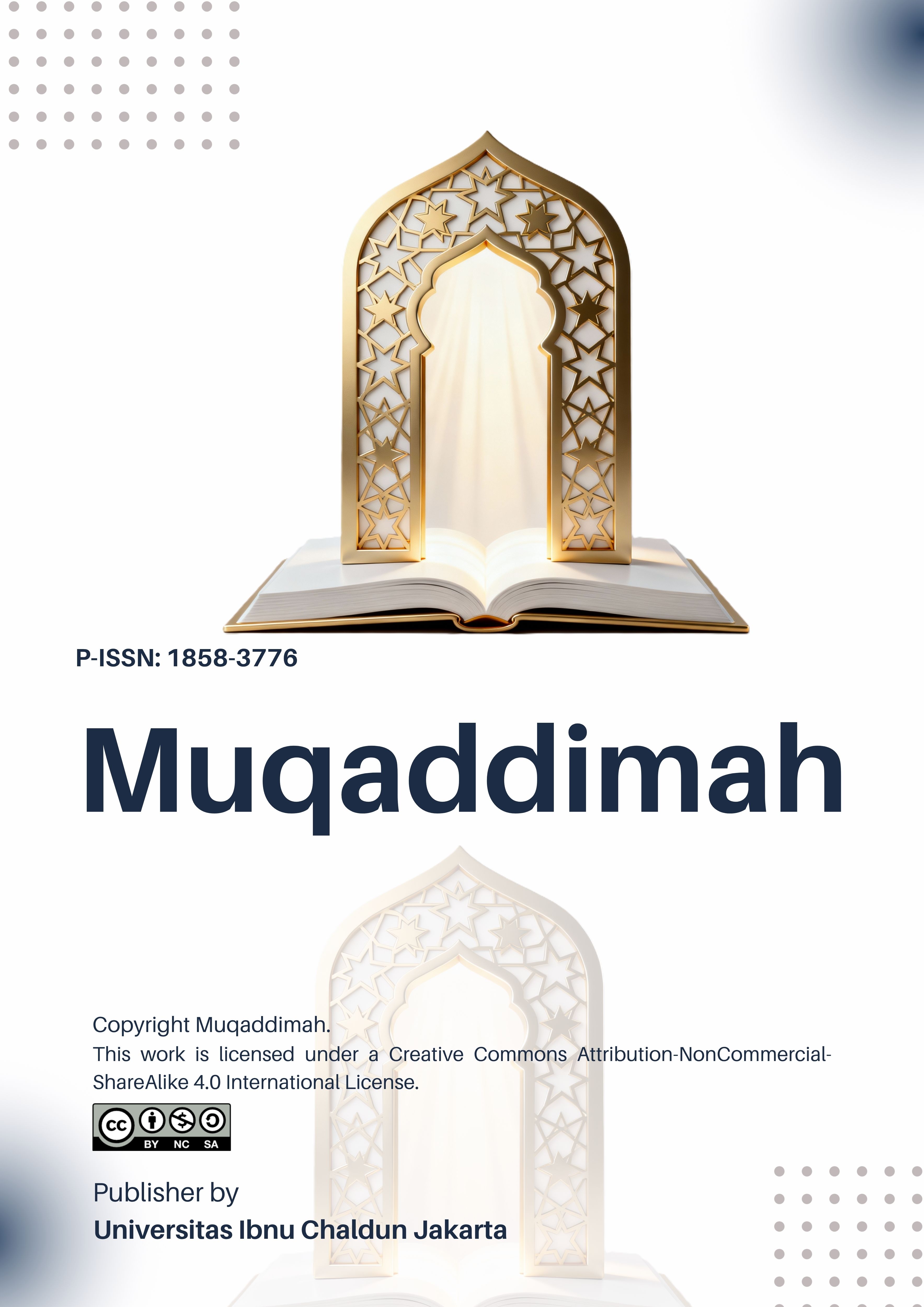KETIKA SAMPAH MENJADI DOSA: STUDI MORAL DAN SPIRITUAL MASALAH LINGKUNGAN DI INDONESIA
Main Article Content
Abstract
Waste is a serious challenge in Indonesia, with widespread impacts on the environment, public health, and sustainability. However, the waste crisis is not only a technical problem or weak management policies, but also a manifestation of a moral and spiritual crisis. This research aims to analyze the waste problem in Indonesia as a matter of sin and moral violation from the perspective of major religions embraced by the Indonesian people. The research uses a qualitative literature approach with empirical data from KLHK and UNEP, as well as a review of the teachings of Islam, Christianity, Hinduism, Buddhism, and Confucianism. The results show that littering behavior and consumptive lifestyles are violations of moral, spiritual and ecological responsibility values. In Islam, these actions include fasad fi al-ardh (destruction of the earth) which is forbidden. . Christianity highlights stewardship as a duty to care for the planet. Hinduism advocates for dharma and the reverence of nature, Buddhism highlights ahimsa (non-violence), while Confucianism promotes the balance of Tian, earth, and humanity. Consequently, addressing the waste issue in Indonesia must focus on moral and spiritual changes, along with enhancing policies and technical management, to achieve sustainable ecological practices in the future
Downloads
Article Details

This work is licensed under a Creative Commons Attribution-ShareAlike 4.0 International License.
How to Cite
References
Azwar, S. (2020). Etika Lingkungan Perspektif Islam. Yogyakarta: Pustaka Pelajar, p.43.
Bowen, G. A. (2009). Document analysis as a qualitative research method. Qualitative Research Journal, 9(2), pp. 27–40.
Capra, F. (2002). The Hidden Connections: Integrating the Biological, Cognitive, and Social Dimensions of Life into a Science of Sustainability. New York: Doubleday, p.15.
Creswell, J. W. (2016). Research Design: Qualitative, Quantitative, and Mixed Methods Approaches (4th ed.). Thousand Oaks, CA: Sage Publications, p.125.
Fung, Y. L. (1997). A Short History of Chinese Philosophy. New York: Free Press, p.321.
Jambeck, J. R., Geyer, R., Wilcox, C., Siegler, T. R., Perryman, M., Andrady, A., Narayan, R., & Law, K. L. (2015). Plastic waste inputs from land into the ocean. Science, 347(6223), pp. 768-771. doi:10.1126/science.1260352.
KLHK. (2022). Data Statistik Sampah Nasional Tahun 2022. Jakarta: Kementerian Lingkungan Hidup dan Kehutanan Republik Indonesia, p.34.
McFague, S. (2008). A New Climate for Theology: God, the World, and Global Warming. Minneapolis: Fortress Press, p.35.
Mulyati, E., & Sulaeman, A. (2021). Pengelolaan Sampah Berbasis Komunitas di Kota Bandung. Jurnal Ilmu Lingkungan, 19(1), pp. 45–55. https://doi.org/10.14710/jil.19.1.45-55.
Nasr, S. H. (1996). Religion and the Order of Nature. New York: Oxford University Press, p.97.
Patton, M. Q. (2002). Qualitative Research & Evaluation Methods (3rd ed.). Thousand Oaks, CA: Sage Publications, p.247.
Prasetyo, H. (2019). Perilaku Masyarakat dalam Pengelolaan Sampah Rumah Tangga di Kota Malang. Jurnal Pengelolaan Lingkungan, 21(2), pp. 115-123. https://doi.org/10.22146/jpl.21.2.115-123.
Rahula, W. (1974). What the Buddha Taught. New York: Grove Press, p.48.
Radhakrishnan, S. (1993). The Principal Upanishads. New Delhi: HarperCollins, p.240.
Rangkuti, S. S. (2004). Hukum Lingkungan dan Kebijakan Pengelolaan Sampah di Indonesia. Jakarta: Rajawali Pers, p.88.
Sugiyono. (2019). Metode Penelitian Kualitatif, Kuantitatif, dan R&D. Bandung: Alfabeta, p.224.
UNEP. (2018). Single-Use Plastics: A Roadmap for Sustainability. United Nations Environment Programme, p.7. Retrieved from https://www.unep.org/resources/report/single-use-plastics-roadmap-sustainability.
Yu, C., Xu, M., & Liu, L. (2017). Moral education, environmental education and sustainable development. Sustainability, 9(4), p.6115. https://doi.org/10.3390/su9040615.
Giganti, P. (2007). Why Teach Problem Solving, Part I: The World Needs Good Problem Solvers!. ComMuniCator, 31(4), 15-16.

